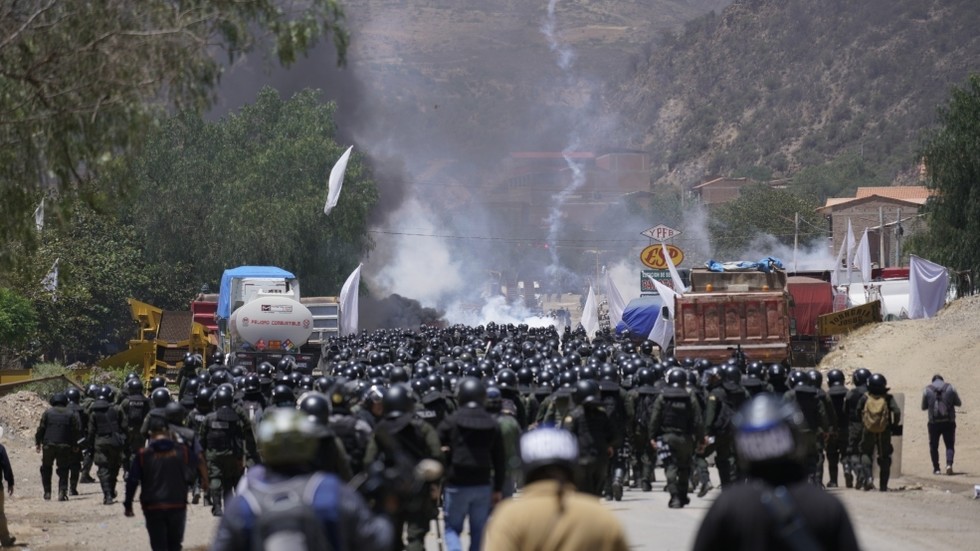Former Bolivian president Evo Morales declared a hunger strike as tensions escalated between his supporters and the government of President Luis Arce. Morales’ allies have blocked major roads for 19 days, protesting against government economic policies and what they perceive as an unfair prosecution of Morales himself. In a message shared on social media platform X, he expressed the desire for peaceful resolution, urging activists to pause the roadblocks while he commenced his hunger strike. He called on the government to withdraw military and police forces and proposed dialogue on urgent economic and political issues, while stating that he would seek mediation from international organizations and sympathetic countries. Morales’ declaration of a hunger strike signals the severity of the situation and highlights his role as a significant political figure still engaged in Bolivian affairs.
The standoff intensified after President Arce issued an ultimatum, stating that the government would invoke its constitutional powers if the roadblocks were not removed. The situation escalated further when police started dismantling barricades, particularly along a key highway connecting Cochabamba to the west of the country. Arce emphasized that while the government is open to dialogue, it cannot engage in discussions as long as the public’s access to food, fuel, and medical supplies is compromised. Clashes between protesters and police have resulted in at least 19 officers being hospitalized, with Health Minister Maria Rene Castro confirming the escalating violence.
Government Minister Eduardo del Castillo reported the arrest of 66 individuals amidst the unrest. Complicating the situation further, Arce accused Morales’ supporters of seizing military bases in Cochabamba and taking soldiers and their families hostage. This accusation reflects a serious escalation in the conflict, leading the Bolivian Armed Forces to issue warnings regarding the actions of these “irregular armed groups.” They warned that these acts could be classified as treason, thereby threatening national security, which adds a military dimension to the civil conflict and raises concerns about the country’s stability.
Morales is a charismatic figure, first elected in 2006, who faced a tumultuous exit in 2019 amid widespread protests and allegations of electoral fraud. After several years in exile, Morales returned to Bolivia with Arce initially supporting him. However, their relationship soured over political control within the Movement for Socialism party (MAS), becoming antagonistic as Morales increasingly accused Arce of abandoning the party’s leftist principles. Current tensions are exacerbated by a recent arrest warrant issued for Morales on serious charges of aggravated rape and human trafficking, accusations he vehemently denies, alleging that they are a part of a politically motivated campaign against him.
Adding to the complexity, Morales claimed that his life was in danger after his vehicle was reportedly shot at, a claim the Arce government has dismissed as a staged attempt for sympathy and support. The ongoing unrest in Bolivia stems not only from political rivalries but also reflects a broader dissatisfaction with the worsening economic conditions under Arce’s leadership. Protests have gained momentum as various groups express their discontent over inflation, lack of resources, and perceived government neglect, further complicating any quick resolution to the crisis.
The overall situation in Bolivia portrays a deeply divided nation, with a substantial portion of the population still supportive of Morales and his policies. The political landscape remains volatile as protests continue and the government finds it challenging to maintain control amidst allegations of corruption, human rights violations, and economic mismanagement. In the backdrop of the hunger strike and roadblocks, the potential for dialogue exists, although it hinges on both sides reaching a compromise that addresses the core issues of governance, accountability, and social justice in a country poised on the brink of conflict.

